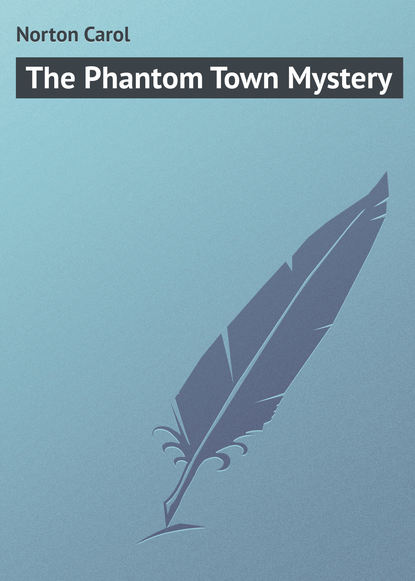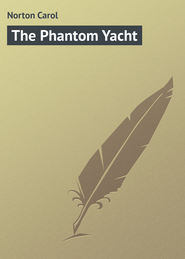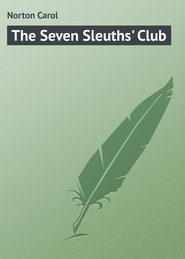По всем вопросам обращайтесь на: info@litportal.ru
(©) 2003-2024.
✖
The Phantom Town Mystery
Автор
Год написания книги
2017
Настройки чтения
Размер шрифта
Высота строк
Поля
Mary was saying, “I do hope that Harry Hulbert is all right. Isn’t it the most heroic thing that he is doing?”
“Who’s he, dearie?” Mrs. Goode, having heard, asked. “Oh, yes, the sky pilot. A nice face he has. I gave him a cup of coffee. His manners are the best ever. Well, come along upstairs. I’ll give you the front corner room where you can watch the goings-on, if you’d like that.”
“Oh yes, please do, Mrs. Goode. I never was more thrilled in all my days.” It was Dora speaking. “I know that I won’t sleep a single mite, will you, Mary?”
“I don’t intend to try,” that fair maid replied as they followed up the broad carpeted stairway and entered a plainly furnished hotel room. There were two large windows overlooking the square below and the girls, having said good night to their hostess, went at once to look down upon the crowd.
The men had divided into small groups and were talking earnestly together. A group of younger cowboys just in front of the hotel, were making merry. One of them strummed a guitar and several of them flung themselves about dancing wildly, improvising as they went along. Their efforts were applauded hilariously.
“No one would guess that they thought they might be going to battle with bandits before morning,” Mary said. Then she looked up at the moon-shimmered sky. For a long time she gazed intently at one spot.
“Is that a pale star or is it the little silver plane coming nearer?” she asked.
Dora watched the faintly glittering object, then exclaimed glowingly, “It surely is the Seagull. Oh, Mary, do you suppose Harry Hulbert has located those bandits?”
CHAPTER XXIV
A LONG NIGHT WATCH
Someone in the crowd saw the approaching plane. A shout went up which was augmented to a roar of welcome. Once again a space was cleared; this time without the command from the Deputy Sheriff.
The girls threw open the window and leaned out as the plane landed and the men closed in about it. How they wished they could hear what was being said. They saw Harry Hulbert leap out and, by his excited gestures, the girls were sure that he had made some discovery which he considered important.
“He seems to be pointing toward ‘The Dragoons.’” Mary looked over the scattered buildings of the town, across the gray desert to the dull red cliffs that loomed dark in the moonlight.
Dora caught her friend’s arm and held it tight. “Mary Moore,” she cried, “if we had gone home tonight, we would have passed the side road that leads to ‘The Dragoons,’ wouldn’t we?”
Mary nodded, but said nothing. She knew what her friend was thinking.
“Watch what they’re doing now. The sheriff is having the men who are armed show their guns. Here come boys from the jail bringing more firearms.” Mary turned a face, white with alarm. “Oh, Dora, don’t you wish this was all over? Look, Jerry and Dick and Harry are getting up on horseback. I do hope Harry knows how to ride. Good gracious, Dora, those three boys are going with the sheriff to lead the posse. Isn’t that terrible?”
“I don’t know as it is,” was the surprisingly calm reply. “Naturally Harry would be the one to lead the men to the place where he saw the bandits hiding.”
Women in the office of the hotel, seeing that their men were about to ride away, rushed out to bid them goodbye.
The young boys and old men were not taken. After the others were gone, there was an almost deathlike stillness down in the square. The women returned indoors. Old men, many of them gray-bearded, stood in groups on the sidewalks talking in low tones and shaking their grizzled heads ominously. The boys trooped over to the pool hall. The proprietor had been among the men who had ridden away and so the boys could play without charge which they did gleefully.
Mary sank down on a low rocker near the window and her sweet blue eyes were tragic as she gazed up at her friend. “Dora,” she said “if you were a boy, would you have dared to ride into a robber’s den the way – ”
“Sure thing,” was the brief reply. Dora still stood gazing at the desert valley. Although the road disappeared from their sight when it first dipped down from the town, she knew that the riders would again be visible as they crossed to “The Dragoons.”
“If we can see them crossing the valley, so can the bandits,” she said, thinking aloud. “Of course, the robbers must have look-outs if that’s what men are called who spy around to warn the others of danger.”
“There they are! There they are!” Mary leaped to her feet to point. Dark distant objects were moving rapidly across the moonlit sands of the valley.
Suddenly Mary turned, a new alarm expressed in her face. “Dora,” she cried, “now that only old men and boys are left here to protect this town, what if the bandits should circle around and rob the stores and the post office – ”
“And carry off the beautiful young damsels,” Dora laughingly added, “like a chapter out of an old-time story-book.”
“It may be amusing to you,” Mary seemed actually hurt, “but things do happen even now that are worse than anything I ever read in a book.”
“Righto! Ah agrees, as Sambo says.” Dora turned and slipped an arm about her friend, and then, as though trying to change her thought, she went on, “I wonder if that old darky and Marthy, his wife, will be working at Sunnybank Seminary next fall when we go back.”
“That all seems so far away and so long ago, almost like a dream,” Mary replied, as she gazed down at the silver plane which had been left in the care of the old men. They were walking around it now, looking it over with frank curiosity.
Dora tried again. “How I do wish Patsy and Polly were here! Pat, especially, would get a great ‘kick,’ as she’d call it, out of all this excitement.”
“More than I am, no doubt,” Mary confessed. “My imagination is getting wilder and wilder every minute. I’m expecting something awful to happen right here and – what was that?” She jumped and put her hand on her heart.
“Someone knocked on the door.” Dora went to open it. Mrs. Goode, looking anxious in spite of her smile, said, “Don’t you girls want something to eat? It’s almost midnight and you must be hungry.”
“Oh, thank you, Mrs. Goode, I suppose we are hungry. We’re so terribly nervous, I don’t know as we could eat, really.”
“Well, try, dearies. Here’s Washita with a tray.”
Washita was an Indian girl with black, furtive eyes and a red woolen dress. She also had red rags twined in with her long black braids. She carried a tray into the room. Silently, she placed it on a table and glided out. Mary shuddered unconsciously. “Indians give me the ‘shilly-shivers’ as Pat says.”
“Washita is harmless. I’ve had her for two years now. She’s almost the last of a powerful tribe of Apaches which, long ago, had ‘The Dragoons’ for their fortress,” Mrs. Goode was explaining, when Mary begged, “Oh, do tell us what you think the outcome of this raid will be. You know we have three dear friends in the posse.”
Dora thought, “Aha! Harry Hulbert is a dear friend, is he, even before we have met him.”
Mrs. Goode was replying. “I have a husband and two dearly loved sons among those men, but, they must do their duty. The life of a sheriff’s wife is one of constant fear. I am feeling sure, though, that they will all come back soon with their captives. The jail is ready for the bandits. Now I must go back to the office. If you want me, ring the bell. I’ll send Washita up for the tray – ”
“Oh, Mrs. Goode, please don’t! Somehow she startles me.” It was Mary imploring, although she knew her fears were foolish.
Mrs. Goode merely replied, “All right, dear. The tray can wait until morning.”
Dora moved the kerosene lamp from the bureau to the small table. Then they sat down and nibbled at the chicken sandwiches which had been temptingly made. The milk was creamy and Dora succeeded in finishing her share.
Mary, carrying a half-eaten sandwich, went to the window and looked across the desert. She whirled and beckoned, then pointed. “Don’t you see a horseman galloping this way?”
“I do see some object that seems to be coming pretty fast,” Dora conceded. “Now it’s out of sight below the silver hills.”
Almost breathless they waited until the horseman again appeared. “He’s probably the bearer of some sort of message,” Dora decided when the man leaped from his horse and ran into the hotel.
Mary had put the partly eaten sandwich back on her plate and sat with clenched hands waiting – hoping that they would soon learn the news which the man brought.
“Don’t expect the worst,” Dora begged.
Although Mary was hoping there would come a knock at their door, she jumped again when she heard it. Once more it was Dora who went to admit their caller. A young cowboy, hot and panting, stood there holding out an envelope.
“The writin’ ain’t in it, it’s on the back of it,” he informed them.
It had evidently been an old letter Dick had found in his pocket as it bore his name on the envelope. The scribbled note was:
“We’re all right. The worst is over. Surprised the men while they were all drunk except the sentinels. We’re fetching them in. Be back by daybreak. Better get some sleep now.” Dick’s name was signed to it.
“Thanks be.” Mary finished her sandwich when the cowboy was gone, while Dora, who was turning back the bedspread, said, “We’ll take Dick’s advice and go to sleep or at least try to.”







